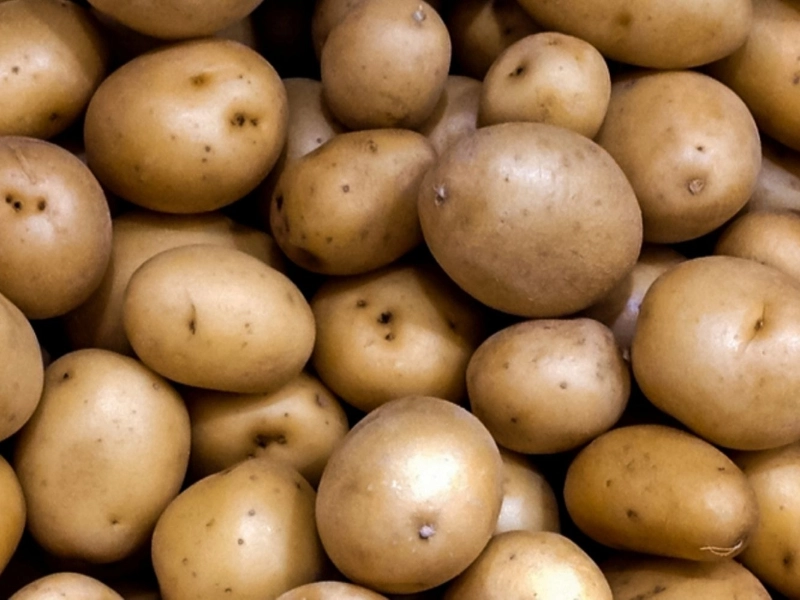Are Potatoes Unhealthy Yes Or No?
Despite their undeserved reputation as starchy foods, potatoes are actually rather healthful. They have a respectable quantity of protein and are rich in vitamins, minerals, and other nutrients. They also have no cholesterol. However, how we cook them can make them ruin our diets. As long as they are simply baked or boiled, they can be included in a healthy diet.
Indeed

No
 When potatoes are prepared with an eye toward portion control and topping selection, they can be a nutritious component of a diet, even though they become unhealthy when topped with bacon, cheese, sour cream, or deep-fried. Several types offer diverse nutrients, such as thiamin, riboflavin, vitamin B6, copper, tryptophan, manganese, and niacin. They are a great source of fiber, potassium, and vitamin C.
Potatoes have a high glycemic index (GI), much like all carbohydrates, which indicates they could temporarily raise blood sugar levels. The good news is that you can control your blood sugar levels and avoid spikes by consuming a range of foods that contain both simple and complex carbohydrates.
Potatoes also have a high content of heart-healthy minerals, such as soluble fiber and vitamin C, and are an excellent source of potassium, which supports the health of the kidneys. Furthermore, almost half of your daily required consumption of vitamin A, which is essential for preserving eye health, may be found in a medium-sized baked potato. In addition, beta carotene—an antioxidant present in other orange vegetables—that your body can convert to vitamin A is abundant in sweet potatoes.
When potatoes are prepared with an eye toward portion control and topping selection, they can be a nutritious component of a diet, even though they become unhealthy when topped with bacon, cheese, sour cream, or deep-fried. Several types offer diverse nutrients, such as thiamin, riboflavin, vitamin B6, copper, tryptophan, manganese, and niacin. They are a great source of fiber, potassium, and vitamin C.
Potatoes have a high glycemic index (GI), much like all carbohydrates, which indicates they could temporarily raise blood sugar levels. The good news is that you can control your blood sugar levels and avoid spikes by consuming a range of foods that contain both simple and complex carbohydrates.
Potatoes also have a high content of heart-healthy minerals, such as soluble fiber and vitamin C, and are an excellent source of potassium, which supports the health of the kidneys. Furthermore, almost half of your daily required consumption of vitamin A, which is essential for preserving eye health, may be found in a medium-sized baked potato. In addition, beta carotene—an antioxidant present in other orange vegetables—that your body can convert to vitamin A is abundant in sweet potatoes.
Moderately
 Even though potatoes have a negative reputation, particularly in the context of the ketogenic diet and other low-carb eating regimens, they can still be a healthy dish if they are cooked in a low-sodium, non-fried manner. Potatoes are classified as starchy vegetables, and the USDA suggests consuming up to five cups of them per week.
Vitamin C, vitamin B6, potassium, dietary fiber, and niacin are all abundant in potatoes. Additionally, they include potent antioxidants that stop free radicals from forming, which are harmful metabolic byproducts that can lead to long-term conditions like diabetes and heart disease.
Fried potatoes, especially fries and chips, can raise blood sugar levels when consumed frequently, which can raise the risk of type 2 diabetes and high blood pressure. Furthermore, any nutritious value those potatoes may have can be negated by the extra oil and salt. Beckerman and Brissette advise sticking with healthier preparation techniques like baking or boiling potatoes if you're going to consume them.
Even though potatoes have a negative reputation, particularly in the context of the ketogenic diet and other low-carb eating regimens, they can still be a healthy dish if they are cooked in a low-sodium, non-fried manner. Potatoes are classified as starchy vegetables, and the USDA suggests consuming up to five cups of them per week.
Vitamin C, vitamin B6, potassium, dietary fiber, and niacin are all abundant in potatoes. Additionally, they include potent antioxidants that stop free radicals from forming, which are harmful metabolic byproducts that can lead to long-term conditions like diabetes and heart disease.
Fried potatoes, especially fries and chips, can raise blood sugar levels when consumed frequently, which can raise the risk of type 2 diabetes and high blood pressure. Furthermore, any nutritious value those potatoes may have can be negated by the extra oil and salt. Beckerman and Brissette advise sticking with healthier preparation techniques like baking or boiling potatoes if you're going to consume them.









